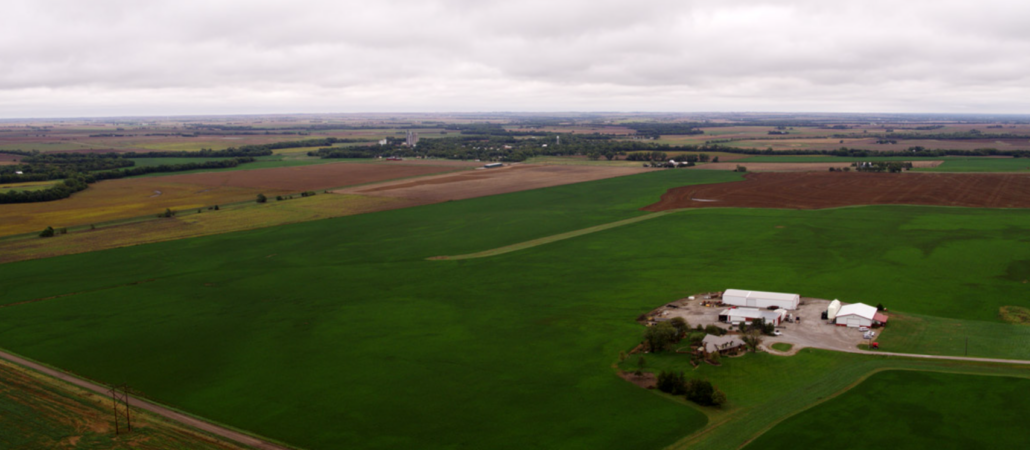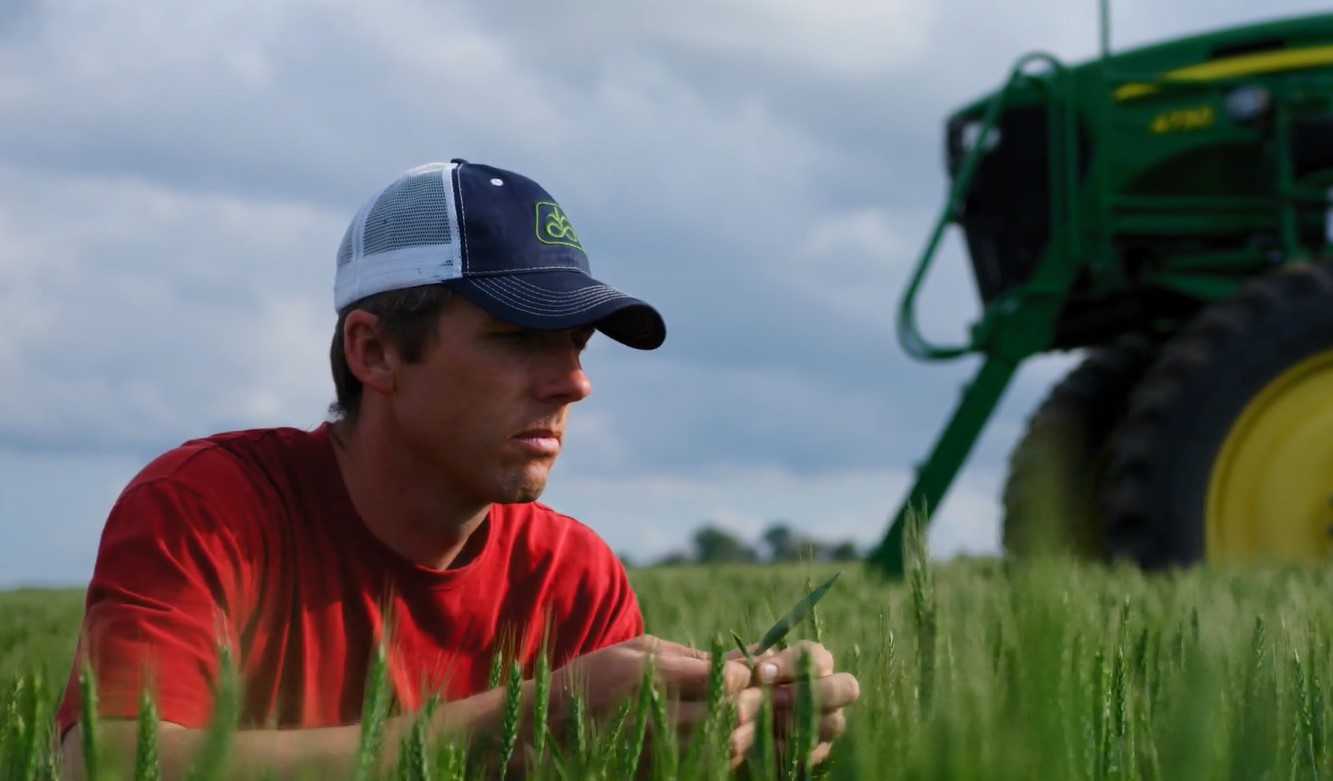Stories of Stewardship: Generations of Care in Central Kansas
As a 5th generation farmer and father of three working alongside his own father and brother, Justin Knopf (above) recognizes his responsibility as a steward of the land for the next generation both on and off the farm. On the farm in central Kansas near the town of Gypsum, the Knopf family grows hard red winter (HRW) wheat, alfalfa, grain sorghum, soybeans, and corn on the same land the family originally homesteaded in the 1860’s.
Justin is passionate about being involved in the industry and says outreach is an important part of agricultural sustainability.
“What I do impacts consumers, so it is important to take time and energy to be transparent with them and share the bigger story of what is happening in our landscape,” he says. “I have been given a gift to be able to work with the land and that comes with responsibility.”
Cover Crops
Justin is always learning new farm management skills and how he can apply the latest technology. After attending a no-tillage farming conference, he learned that an evolving no-till system includes having a crop always growing in the soil. After experimenting with cover crops in his rotation, the results show this boosted biological diversity in his soil and at times allowed him to reduce the use of weed, disease, or insect control products where cover crops are grown.
Improving the Soil
Quality soils are crucial for crops to reach their full potential, but abuse can quickly lead to nutrient loss, erosion, and reduced productivity. Farmers on the Plains witnessed the cost of over-plowing their soil in the Dust Bowl of the 1930s and since then have fought hard to protect their most precious resource.
The Knopf family has invested in soil health through cover crops, no-till farming, and crop rotations. The changes have improved soil health. The soil is better able to retain moisture and is more fertile, which helped reduce inputs like fertilizer and fuel and increased yields. But these changes did not happen easily or overnight. Adding these new management practices required a financial investment, continued education and dedication from Justin and his family.

The Knopf family grows hard red winter wheat, alfalfa, grain sorghum, soybeans, and corn on the same central Kansas land the family homesteaded in the 1860’s. Photo courtesy of Kansas Wheat.
Keeping the Soil
There is no irrigation or tillage on the entire Knopf family farm. Since the family transitioned to no-till farming in the early 2000s, Justin says he has seen a physical change in their soil. The soil is darker, richer and has more organic matter than before. These rejuvenated soils are more productive and resilient, making it easier to grow crops with fewer inputs and less rain (something that has been even more important given the recent long drought in the region), and are less likely to erode.
“The land will go on for much longer than I will be here, and it’s a much bigger story outside of myself,” Knopf says. “So I feel a responsibility to share that bigger story of what is happening with other people as a part of our stewardship.”
Knopf participated in the U.S. Wheat Associates (USW) film “Wholesome: The Journey of U.S. Wheat” discussing the care he takes in his wheat crop with sustainable practices.
U.S. Wheat Associates (USW) is reaching out to wheat farmers across the United States to learn how they strive to improve their land and manage resources. Each is committed to adapting to the many challenges they face and making choices that are best for the environment, their individual farms, and their customers. We are proud to share their “Stories of Stewardship.”


